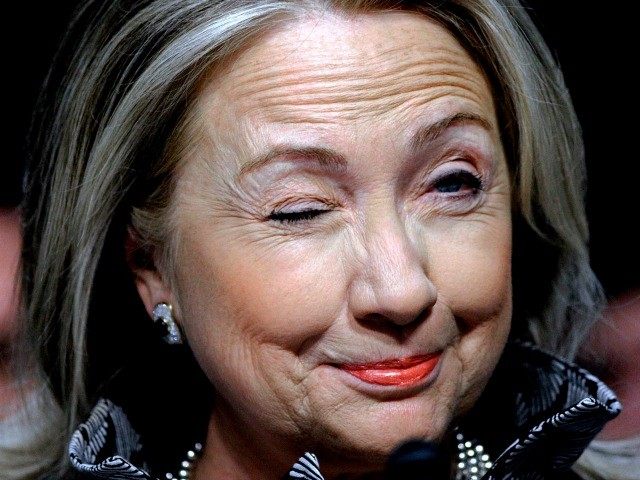Politifact, the fact-checker run by the Tampa Bay Times, decided to fact-check Hillary Clinton’s email press conference. Curiously though, the site chose not to rate her statement as true or false, claiming it was too difficult for them to judge.
Hillary claimed Tuesday that she “fully complied with every rule I was governed by” with regard to the use of email while Secretary of State. This statement would seem to be an ideal candidate for fact-checking given that the story has dominated the news for more than a week. Was Clinton telling the truth?
Generally when Politifact reviews a claim they rate it using their Truth-O-Meter, a graphic which signals whether claims are true, mostly true, half-true, mostly false, false, or pants-on-fire. But according to Politifact, they couldn’t rate the Hillary’s claim because “there are a lot of unknowns.”
Despite balking at making a judgment, Politifact presents some evidence that Hillary’s statement was at least partly false. For instance, CUNY professor Douglas Cox tells Politifact, “While Clinton may have technical arguments for why she complied with each of these and the other rules that have been discussed in the news, the argument that Clinton complied with the letter and spirit of the law is unsustainable.” Cox adds that Hillary’s exclusive use of personal email means she skirted the rules about maintaining government records.
On that point, Daniel Metcalfe, a former DOJ Director of Information Policy, tells Politifact that Hillary’s use of personal email was against the National Archives and Records Administration’s rules which require that work emails be archived and available for FOIA requests. Gary Bass of the Bauman Foundation tells Politifact Hillary broke no “laws and regulations” in place when she was Secretary, though that’s not exactly apples-to-apples with the claim made by Hillary (she said she’d complied with “every rule” which seems broader).
Politifact sums up the evidence by throwing up their hands, “Clinton’s exclusive use of private email makes it difficult to know with certainty whether she complied with rules governing transparency, recordkeeping and security.” The author adds, “We may never know what emails she deleted.” Saying we may never know because Hillary has all the evidence doesn’t seem like a compelling argument that someone followed all the rules.
Politifact routinely argues that a statement which is technically true (or mostly true) is nonetheless misleading because of some broader context. For instance, this recent fact-check of Bill O’Reilly concluded, “O’Reilly’s statement is accurate but omits important context, so we rate this claim Half True.” And this fact-check of Jeb Bush concluded his statement is basically accurate but rates his claim mostly false because, “There’s no hard evidence Bush’s One Florida program had much to do with the enrollment changes.”
Why didn’t Politifact weigh in with a similar ruling about Hillary Clinton? Why not say, in keeping with the statements they were given by outside experts, that she appears to have gamed the system in a way that was questionable at the time and definitely unacceptable now? For once, Politifact doesn’t want to make a tough call about the broader context.

COMMENTS
Please let us know if you're having issues with commenting.